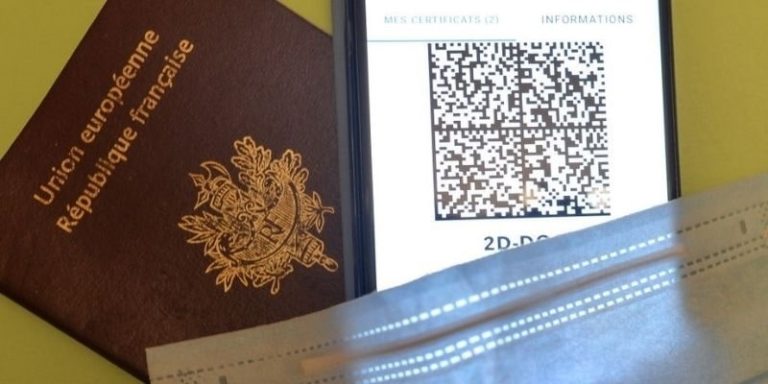English Translations on French ID Cards? Some say ‘Non!’
Is language really that important?
By: Kirsten Brooker | January 19, 2022 | 701 Words

(Photo by Artur Widak/NurPhoto via Getty Images)
“Because of language, man has access to the past and the future. He can express the true and the untrue. Language helps him understand both what is and what could be.” – Wesley Douglass Camp
Language is a key part of culture and how people communicate and discover new ideas. The English language is evolving all the time, with new words added and old words forgotten. Some words are borrowed from other languages, and new dialects arise. But should we be trying to preserve the language as we know it? A recent debate in France might give some insight.
The Académie française in France is frustrated that the country’s new national ID cards have English translations, as well as French writing. Other documents, including French passports, also translate French to English. Still, the Académie feels that the ID cards are not meant for travel and do not need the translations since they will only be used within France.
Taking It to Court
The Académie française is one of the country’s oldest establishments, and its job is defending and defining the French language. In 2021, English was added to the French ID cards. The Académie views the English translations as violating their constitution. The institution is ready to challenge the change.
Hélène Carrère d’Encausse and Frédéric Vitoux of the Académie had this to say: “… by choosing English as the only language of translation, the authors of the project have forgotten the desire of the public authorities – supported by public opinion – to preserve the French language from the invasion of foreign terms, which are particularly English words, when they are not useful.”
This would be the first time the Académie française has gone to the courts with a complaint in its nearly 400-year existence.
 Lingua Franca
Lingua Franca
Over the last hundred years or so, English has become the global language, or “lingua franca.” This means it is the most common language for people to communicate in, even when it is not their native language. In fact, there are more people who speak English as a second-language than as a first-language! If a person from Germany is trying to have a conversation with a Japanese person, for example, it is most likely they would be using English.
English is used for international trade, diplomacy, science, technology, and other global communication. There are several reasons why English became the lingua franca, including the spread of the British Empire in the 19th century, the victory of Britain and the U.S. in World War II, plus the rise of Hollywood and the internet.
Why Is Language So Important to Culture?

(Getty Images)
Culture is the norms and traditions within a group of people, including the knowledge, customs, beliefs, and habits. How does language fit into culture? Language is how humans communicate and form bonds. These bonds create a sense of community and togetherness. This guides our personalities, behaviors, and interactions.
Ken Hale, a famed linguist, once said: “When language is lost, a part of the culture gets lost as well.”
Which Came First – Language or Culture?
You have likely heard the riddle, “Which came first, the chicken or the egg?” This puzzle’s answer really can’t be proven, but what about the question of whether language or culture came first? Some suggest language did. It could be said that by sharing thoughts, ideas, and beliefs, the population gradually came together and created its culture.
The translations on the new identification cards are seen as a disruption of French culture to the members of the Académie française. On the other hand, the Académie has been criticized at times for being too controlling over the French language and not allowing it to adapt to the modern world.
Globalization has had many benefits, but it has also caused unique cultures to be lost or weakened. Can you think of any other examples? Do you think America needs a similar academy, or is it better to allow the natural evolution of language?
















